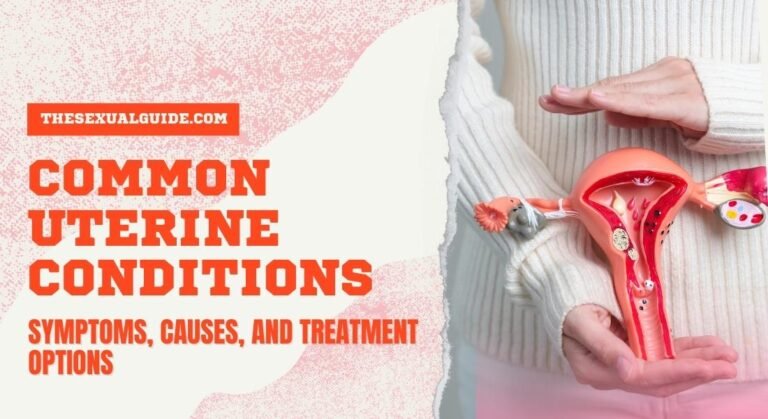Progesterone plays a vital role in maintaining hormonal balance, particularly for women.
This hormone supports reproductive health, regulates menstrual cycles, and can even influence mood.
While medical treatments are available to address low progesterone, there are natural ways to encourage your body to produce more of it.
This article explores lifestyle changes, dietary recommendations, and holistic approaches to help naturally boost progesterone levels.
What Is Progesterone and Why Is It Important?
Progesterone is a hormone primarily produced in the ovaries after ovulation. It works alongside estrogen to regulate the menstrual cycle and prepare the body for pregnancy.
Low progesterone levels can result in irregular cycles, difficulty conceiving, or symptoms like mood swings and fatigue.
Signs of Low Progesterone
Low progesterone levels can manifest in several ways. Common symptoms include:
- Irregular or missed periods
- Heavy menstrual bleeding
- Difficulty getting pregnant
- Premenstrual syndrome (PMS) symptoms, such as mood swings and bloating
- Fatigue and low energy
- Sleep disturbances
If you suspect low progesterone, consult a healthcare provider to confirm through testing.
Natural Ways to Increase Progesterone
1. Adopt a Balanced Diet
Your diet plays a crucial role in hormone production. To support progesterone levels:
- Consume Healthy Fats: Include foods like avocados, nuts, seeds, and olive oil. These fats aid hormone production.
- Eat Zinc-Rich Foods: Zinc supports ovarian health. Foods like shellfish, chickpeas, and pumpkin seeds are excellent sources.
- Prioritize Vitamin B6: This vitamin aids in progesterone production and helps alleviate PMS symptoms. You can find it in bananas, spinach, and fortified cereals.
- Increase Magnesium Intake: Magnesium supports adrenal health, which can influence progesterone levels. Dark leafy greens, almonds, and dark chocolate are great options.
- Limit Processed Foods: Refined sugar and trans fats can disrupt hormonal balance.
2. Reduce Stress Levels
Chronic stress triggers the release of cortisol, which can deplete progesterone levels. Try these stress-management techniques:
- Mindfulness and Meditation: Daily meditation or mindfulness exercises can lower cortisol levels.
- Regular Exercise: Physical activity reduces stress and improves overall hormonal health. Aim for moderate-intensity workouts like yoga, swimming, or walking.
- Adequate Sleep: Poor sleep can disrupt hormone production. Strive for 7–9 hours of quality sleep each night.
3. Herbal Supplements
Certain herbs have been studied for their potential to support progesterone levels:
- Chasteberry (Vitex): Known to balance hormones and improve menstrual health.
- Evening Primrose Oil: Often used to alleviate PMS symptoms and support hormonal balance.
- Maca Root: May help improve fertility and balance hormone levels.
Before starting any supplements, consult a healthcare professional, especially if you’re pregnant or taking medications.
4. Maintain a Healthy Weight
Excess body fat can lead to an imbalance between estrogen and progesterone.
On the other hand, being underweight can suppress hormone production.
Maintaining a healthy weight through balanced nutrition and regular exercise can promote optimal progesterone levels.
5. Avoid Endocrine Disruptors
Endocrine disruptors are chemicals found in some plastics, cleaning products, and cosmetics that can interfere with hormone production. To reduce exposure:
- Use glass or stainless steel containers instead of plastic.
- Choose natural or organic cleaning and beauty products.
- Avoid pesticides by opting for organic produce when possible.
When to Seek Medical Advice
If lifestyle changes don’t seem to improve your symptoms, it’s important to consult a healthcare provider.
Medical treatments, such as progesterone creams or hormone replacement therapy (HRT), may be necessary in some cases.
Conclusion
Boosting progesterone naturally involves a combination of dietary adjustments, lifestyle changes, and stress management techniques.
While these methods can significantly improve hormonal balance for many, always consult a healthcare provider for personalized advice.
By making these changes, you can take an active role in improving your hormonal health and overall well-being.
FAQs - How to Naturally Boost Progesterone Levels
1. What are the symptoms of low progesterone?
Common symptoms include irregular or heavy periods, PMS, mood swings, anxiety, sleep disturbances, infertility, and low libido. In some cases, low progesterone can also contribute to estrogen dominance, which may lead to bloating, breast tenderness, and weight gain.
2. Can diet help increase progesterone levels naturally?
Yes. While food doesn’t contain progesterone directly, certain nutrients support the body’s ability to produce it. Focus on foods rich in vitamin B6, magnesium, zinc, and vitamin C, such as leafy greens, salmon, nuts, seeds, avocados, and citrus fruits.
3. Are there natural supplements or herbs that support progesterone production?
Yes. Chasteberry (Vitex agnus-castus) is one of the most studied herbs for supporting progesterone production. Other supportive options include maca root, magnesium, vitamin E, and L-arginine. Always consult with a healthcare provider before starting supplements.
4. What lifestyle changes can help improve progesterone levels?
Reducing chronic stress is crucial, since high cortisol can suppress progesterone. Incorporating regular exercise, adequate sleep, balanced nutrition, and stress-management techniques like yoga or meditation can all help rebalance hormone levels naturally.






